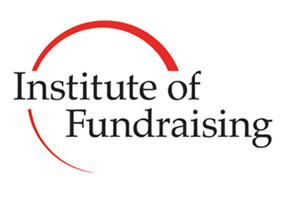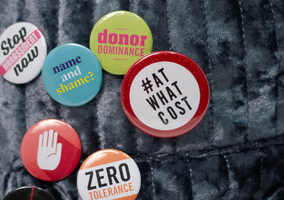Over 75 per cent of female fundraisers have been stereotyped because of their gender at work, new research from the Institute of Fundraising (IoF) has found.
Missing Out: Understanding the Female Leadership Gap in Fundraising was published yesterday and looks at the difficulties that women working in the fundraising sector experience.
The report is based on a survey, focus groups and in-depth interviews, and found multiple issues with gender equality in the profession. This includes stereotyping, gender pay disparities, and lack of support for women who need to balance their career in fundraising with family needs.
Stereotyping, microaggressions and everyday sexism
The survey was answered by 790 paid fundraisers, more than 91 per cent of whom were women. The IoF said 76 per cent of professional fundraisers in the UK are women, meaning they were overrepresented in the survey.
While gender stereotyping is common among both men and women in the profession, the survey found that women are much more likely to experience it, with more than 75 per cent saying they have been at the receiving end of it (against 59 per cent of men). They are also much more likely to be stereotyped by board members and donors rather than by colleagues.
In both the survey and the focus groups, women reported multiple examples of microaggressions, stereotyping and everyday sexism.
One research respondent recalled “being asked by a former trustee what I did, and when I told him I was a fundraiser, his response was ‘do you flutter your eyelashes to bring all the cash in?’”.
Another one said: “In any meeting outside of my team but within my organisation, which involves me and a male colleague, my male colleague is almost always deferred to as the main protagonist, regardless of who has actually called the meeting (me) and who is leading the project (me).”
Speaking at the report launch event, Dr Beth Breeze, who co-authored the research and is director of the Centre for Philanthropy at the University of Kent, said: “Microaggressions - like being called ‘girls’, or being expected to be the person taking notes or making tea in meetings - clearly have major consequences.
“Men certainly also experience stereotyping or being excluded, but more often from colleagues. This does not make it okay, but there’s a power difference between your colleagues doing it or donors and board members doing it.”
‘Structural factors’ behind the gender pay gap
The survey found a 14 per cent gender pay gap among full-time respondents, with men on average earning around £7,000 more a year than women. According to the report, this had to do with “structural factors” more than with direct gender bias.
The report said: “Once age, years of experience and organisation size were accounted for, the gender difference in salaries fades. This suggests that structural factors – notably enabling women to stay in the workforce, get promoted, and access jobs in larger organisations - are a more important concern than direct gender pay disparities.”
However, some respondents also reported experiencing direct gender pay disparities. One said: “During my first year managing a team, a male team member moved from another team to mine. He did the same role as me, minus the management of the team (and I was his manager). I found out during salary reviews that he was paid 25 per cent more than me. On raising this repeatedly over a couple of years, nothing changed. I left the organisation.”
Female fundraisers are also twice as likely as men to be working part-time. A key theme of the report was the difficulty of finding leadership roles that also allow for caring responsibility, flexibility and work-life balance.
Ninety-seven per cent of charities say they offer flexible working, but respondents said this does not necessarily apply in practice, and that lack of clarity over whether truly flexible work can be negotiated can put them off from applying to leadership positions.
One respondent said: “I recruited a lady last year… she was really over-qualified for the job but clearly she was put off applying for more leadership-type roles because of her need for flexibility.”
Sector needs to support women who aspire to leadership roles
The report includes recommendations for charities, the IoF and individual fundraisers.
These go from asking organisations to design a work environment suitable for people who need flexibility to recommending further research on the topic, especially on how other protected characteristics (such as race and disability) can impact one's ability to thrive in the profession. 93 per cent of the survey's respondents were white.
Dr Elizabeth J. Dale, co-author of the report, said: “This research calls on the entire sector, and society more broadly, to not only recognise women’s talent and leadership ambition but to rethink how to address tensions between work and family and create additional supports so that more women can obtain leadership roles.”
Breeze said: “Clearly, the current career ladders in fundraising are not supporting all of the talented people who aspire to reach leadership roles. I hope the recommendations are read and taken seriously by all who are committed to strengthening the fundraising profession and its positive impact on society. Together we can make sure that talent rises to the top.”
The IoF is currently investigating a “small number of complaints” about sexual harassment in the sector, after last year saw fundraisers call for leaders and membership bodies to do more to protect them from sexual harassment by senior colleagues, donors and others.













